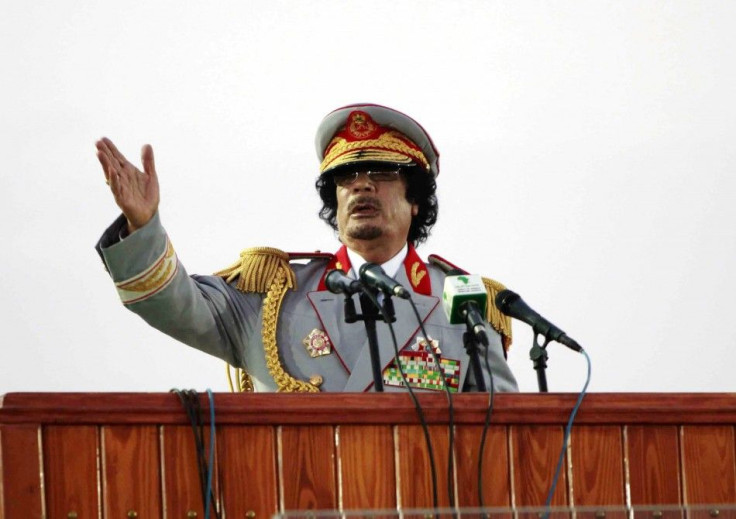Gadhafi's Secret Cache of Chemical Weapons Found in Libya

A secret stockpile of chemical weapons have been found in Libya by National Transitional Council (NTC) forces and have been moved and secured following the death of Libyan dictator Moammar Gadhafi, NTC officials reported.
They are from the Gadhafi era and are under guard, until they can be handed over, an NTC representative said at a meeting between the council and NATO representatives in Qatar, The Daily Mail reported.
The seizure of the weapons is proof that Gadhafi did not dispose of the weapons of mass destruction, as he had promised British Prime Minister Tony Blair in 2004 he would, in an agreement known as the Deal of the Desert. Libya was understood to possess approximately 9 metric tons of mustard blister agent, a larger amount of chemical weapon precursor material and a substantial amount of raw yellowcake uranium.
Blair long claimed he forced the Gadhafi to give up his weapons program, but the process was halted because of the outbreak of the war and the rebels feared a vengeful Gadhafi -- who warned they faced the fires from Hell - would unleash them.
Libya had destroyed more than half of its declared mustard stockpile under the watch of the Organization for the Prohibition of Chemical Weapons, along with thousands of aerial munitions, but the war meant that Gadhafi retained around 10 tons of weapons.
Ian Martin, head of the United Nation mission in Libya, told a Security Council meeting that new, previously undeclared sites for storing chemical weapons had been uncovered since the fall of the Gadhafi government.
Thousands were destroyed during NATO operations. But I have to report to you our increasing concern over the looting and likely proliferation of MANPADS, or Man-Portable Air Defense Systems, Martin told the 15-member council. Gadhafi's regime, he said, had accumulated the largest known stockpile of anti-aircraft missiles.
Nuclear and chemical weapons materials are mainly being controlled by NTC forces.
On Wednesday, Libya's interim leader Mustafa Abdel Jalil asked NATO to continue its mission until at least the end of the year, saying the extension of the mission would help prevent remnants of Gadhafi's loyalists from regrouping and posing a threat to security.
We hope NATO will continue its campaign until at least the end of this year to serve us and neighboring countries, Jalil, head of Libya's NTC, said at the first international planning conference for Libya since Gadhafi's death last week.
This request is aimed at ensuring that no arms are infiltrated into those countries and to ensure the security of Libyans from some remnants of Gadhafi's forces who have fled to nearby countries.
In any event, Libya is expected to be under close watch by the international community, as the NTC is under scrutiny by human rights groups who have many questions about the way Gadhafi's death was handled.
U.S. Defense Secretary Leon Panetta Tuesday declined to say whether President Barack Obama and his administration intend to seek military ties with Libya's new government, amid uncertainty about Islamist influences, the AP wrote.
NATO's 26,000 sorties, including 9,600 strike missions, destroyed about 5,900 military targets since they started on March 31.
© Copyright IBTimes 2025. All rights reserved.





















